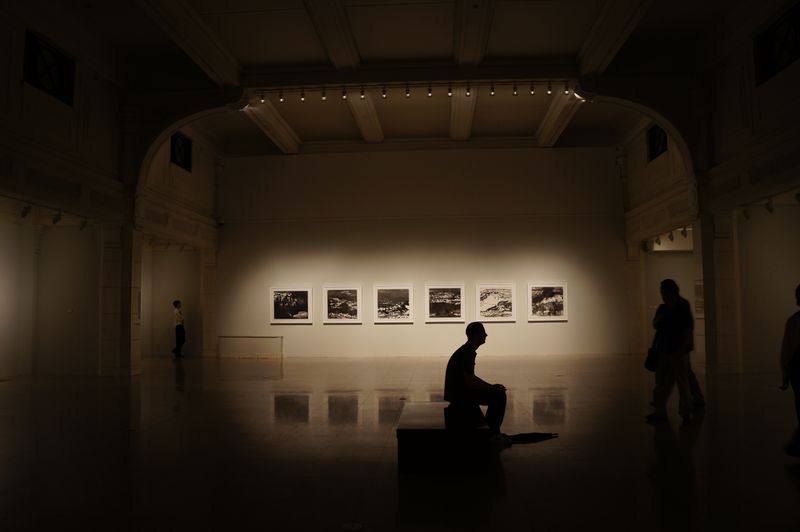Antony Blinken visits Beijing on a mission to mend fractured US-China ties
Antony Blinken, the US Secretary of State, arrived in Beijing on Thursday for a crucial visit aimed at repairing the strained relations between the United States and China. The visit comes at a time when the two nations are facing a range of contentious issues, including human rights concerns, Taiwan, and trade disputes.
As the world’s two largest economies, the United States and China have a complex and interdependent relationship. However, in recent years, tensions have escalated, with both nations engaging in a war of words and imposing tariffs on each other’s goods. This has not only impacted the economic ties between the two countries but has also led to increased strategic competition in areas such as technology and security.
The Importance of the Blinken Visit
Antony Blinken’s visit to Beijing holds significant importance in the context of US-China relations. It signifies a willingness from both sides to engage in diplomatic dialogue and work towards finding common ground on various issues. The approach taken by the Biden administration in dealing with China marks a departure from the confrontational stance adopted by its predecessor.
The visit also highlights the desire to address pressing global challenges such as climate change, non-proliferation, and regional stability through collaboration and engagement. The United States and China, as major global powers, have a responsibility to work together to find solutions to these issues, even as they navigate their areas of disagreement.
The Challenges Ahead
While the Blinken visit is undoubtedly a positive step towards improving US-China relations, there are several hurdles that need to be overcome. Both nations have deeply entrenched differences on various issues, and finding common ground will require a delicate balancing act.
One of the major sticking points in the relationship is human rights. The United States has expressed concerns over China’s treatment of its Uighur Muslim minority, the crackdown on pro-democracy activists in Hong Kong, and the limitations on freedom of expression in the country. China, on the other hand, has accused the United States of interfering in its internal affairs and adopting a hypocritical approach in its own human rights record.
Trade disputes and market access are also significant sources of contention. The United States continues to voice concerns over China’s unfair trade practices, intellectual property theft, and forced technology transfers. China, on the other hand, feels unfairly targeted and believes that the United States is using trade as a political tool to contain its rise as a global power.
Philosophical Implications
The complex relationship between the United States and China raises important philosophical questions about the nature of international relations. It forces us to examine the concept of power and its role in shaping global dynamics.
In a world where power is increasingly decentralized and multipolar, how should nations navigate their relationships with other major powers? Should they prioritize cooperation, recognizing the interdependency of global challenges, or should they adopt a more confrontational approach to protect their national interests?
Furthermore, the United States and China’s rivalry raises questions related to cultural differences and conflicting values. How can nations with diverse political systems, ideologies, and social structures find common ground and foster productive dialogue?
Editorial: Seeking a Path Forward
The Blinken visit provides an opportunity for the United States and China to recalibrate their bilateral relationship and rebuild trust. It offers hope for a more constructive and collaborative approach to addressing global challenges.
Both nations need to prioritize open and honest dialogue, where concerns can be addressed and disagreements can be managed. Building mutual understanding and trust is crucial for the long-term stability and prosperity of not only the United States and China but the entire world.
The international community should also actively support and encourage these diplomatic efforts. It is in the interest of all nations to have a stable and cooperative relationship between the United States and China, given the significant impact of their actions on the global stage.
Advice for the Biden Administration
The Biden administration must strike a delicate balance in its approach towards China. It should continue to address human rights concerns and promote democratic values, while also seeking avenues for cooperation on shared challenges.
It is essential to find areas of common interest, such as climate change and global health, where the two nations can work together effectively. Collaborative efforts in these areas not only have immediate practical benefits but can also lay the groundwork for greater understanding and cooperation on other critical issues.
The Biden administration should also aim for consistency and predictability in its policy towards China. A consistent approach, rather than abrupt policy shifts, will help build trust and enable constructive engagement.
In conclusion, the visit of Antony Blinken to Beijing is a significant step towards repairing the fractured US-China ties. However, both nations face numerous challenges, and the road to a better relationship will require patience, pragmatism, and a commitment to finding common ground. It is a crucial moment for the United States and China to demonstrate leadership and work towards a more stable and prosperous world.

<< photo by Pixabay >>
The image is for illustrative purposes only and does not depict the actual situation.






